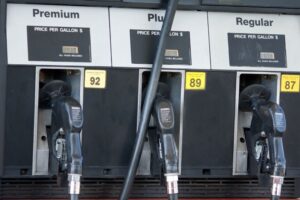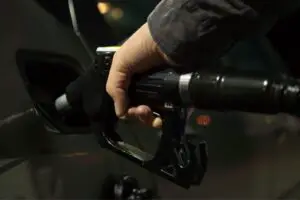Did you know that premium gas can considerably improve your vehicle’s performance and fuel efficiency?
Well, it does come at a cost but is worth it.
Can you mix regular and premium gas?
It has a variable answer. Experts suggest that although mixing is possible, the performance may vary.
If your vehicle runs on premium only gas, then the lower level of octane due to mixing will reduce performance.
Some vehicles that use regular gas are not intended for use with Hi-Octane. So, mixing will not make a difference in them.
This is not all. There are many other factors to consider that will be explored in the article below. It is recommended to read it to ensure you don’t cause any problems in your vehicle.
So, without any further ado, let’s get straight into it!
Table of Contents
What Is The Difference Between Regular And Premium Gas?

Many of you may be wondering if adding premium fuel is equal to a placebo effect, or is there an actual difference?
Well, I can assure you that the latter is true. Premium fuel, also known as Hi-Octane, is a purer form of gas, making it more expensive.
A gas is classified as premium when the octane rating is 92. If it is any lower than that, it is classified as regular gas. This is something to keep in mind.
Many of you may already be aware of the fact that gas stations have three different types of options when refilling:
- Regular
- Octane
- Hi-Octane
The truth is, although the second option is better than regular gas, in terms of octane levels, the difference is not huge.
The gas needs to have at least an 87-octane rating to be classified as regular fuel. The second option needs 89. Hi-Octane is the one that is higher than a 91 rating.
If the question has arisen that gas stations may be selling me the second option instead of proper premium gas, it can be true.
This may also possibly be why refueling your vehicle with the supposedly “Hi-Octane” gas did not result in the performance you were expecting.
Scenarios Where Mixing May Be Used
Let’s take this slowly to ensure that you will not confuse. Commonly, a gas station has not been refueled for the fuel you use.
The alternative may be available, either the premium gas or the regular one. There is no other option to mix the two gases in cases like those so the vehicle can continue driving.
If your vehicle runs on premium gas only, and you don’t want to compromise the engine’s workings, then your best bet is to add enough gas to get you to the next station.
With everyone having smartphones nowadays, you can check the distance to the nearest gas station and add the amount of regular fuel you see fit.
Are There Any Real Advantages Of Mixing Gases?
Now, this is something that many of you need to know. Although you got the answer to the question about mixing premium and regular gas, you also need to know if it is worth it.
This part was covered a bit in the introduction, but this needs to be elaborated on to ensure that you don’t make the wrong decision.
Most vehicles can only use the fuel they are meant to be used with. This means that using a purer gas form will not allow it to perform better.
So, if you would require regular gas and you mix it with Hi-Octane, then chances are there will be little to no performance difference.
If the case is the opposite, and you mix regular gas with your vehicle’s premium one, then you will end up doing more harm than good.
But the reality is that there have been some cases in which mixing fuel has proven beneficial.
Those users reported better gas mileage and even better acceleration after adding the new fuel type.
Which Vehicles Need Premium Gas?
Buying a new vehicle allows you to gain knowledge about a vehicle, thanks to the dealer’s expertise.
Plus, you may already know anything and everything about the vehicle you are buying, which may make you aware of the type of fuel it consumes.
Unfortunately, the same is not the case with used vehicles.
The previous owners may not have kept the vehicle in good condition, and they may not provide you with the knowledge you require.
You could refer to the internet, which is your best option by far, or you could make it a little more fun by narrowing down which fuel your newly purchased vehicle uses.
If it is turbocharged or has a heavy engine, suppose a V6 or a V8, then you need Hi-Octane fuel only. Vehicles like these are designed for high performance.
So, only premium gas will work as intended with them. They have a compression ratio that is much higher than normal vehicles.
If you mistakenly used regular gas with them, then there is a decent chance that the engine may develop a knocking sound.
This is possible, especially in older vehicles with the same specs. If you have a newer one, the ECU may recognize that and reduce the performance as needed.
If you have a normal car, it will use regular gas-only—no need to add premium fuel or mix it up. There will not be a real performance difference, so there is no need to pay extra.
Related: I Accidentally Put Premium Gas In My Car
Vehicles That Have Premium Gas Recommended
If your vehicle’s user manual states that although it uses regular gas and it can use premium for enhanced performance, you can do so.
Only in these instances can mixing prove to be useful.
These vehicles are my favorite ones because if one type of fuel is available, or if you have to mix both of them, in the case of an emergency, you will have the peace of mind that your vehicle will not develop any issues, even in the long run.
These engines have been designed to handle all types of fuels, so you have nothing to worry about.
How Does A Vehicle Adjust To A Different Type Of Fuel In The Tank?
This is a question whose answer honestly surprised me and also impressed me due to the fact that vehicle technology has become so advanced.
Almost any vehicle that has been in manufacturing for the last decade or so has a capable enough ECU that it can recognize the type of fuel that is present in it.
The main issue with older vehicles that developed a knocking sound was that they were already set to a fixed ignition time and fuel injection.
Newer engines can alter these values, making sure that it works in accordance with the fuel that is being used.
So, you may see an improvement or a decrease in engine performance and efficiency, but there is a very small chance of there being a knocking issue.
Can I Switch From Premium To Regular Fuel Permanently?
It is completely logical for a person to save as much as he can. Shifting from premium to regular gasoline is cheaper, but it is not beneficial in the long run.
The engine is capable enough to adjust its workings every once in a while in case of emergencies, but it will start developing problems in the long run.
The knocking issue, which is the most common side effect of this change, may start. The difference in combustion temperatures can lead to damage to the internals of the engine.
The same can be applied when mixing different types of gases. It should only be done once in a while. Making it a habit will not damage the engine but will lessen its lifespan.
Combining that with the fact that there may be no performance difference means that you are mixing fuel for nothing. So, there is no point in doing so.
What About Diesel Cars?
WARNING! Never ever try to add any type of gas to a diesel engine. The workings of these engines are completely different. You will not experience a performance difference.
In fact, the engine will stop working completely. The damage may be unrecoverable, and it should not be done, period.
After you have done so and have realized your mistake, you will have to flush the fuel lines, add diesel, and then assess the damage to the engine.
Flushing the fuel lines can only be done by a professional. It is basically cleaning the fuel lines of any and all types of fuels in it.
You have to tow your vehicle to the proper mechanic. If you try to drive it, the damage will progress even further. So, you should just accept your mistake and call a towing company.
Just to say it out loud, you should also never put diesel in gasoline vehicles. There will be similar or worse engine failure.
Unless you are comfortable paying thousands of dollars in order to get your vehicle back in usable condition, this must not be done.
Conclusion
Before ending this article, let’s sum up this article and answer the question, can you mix regular and premium gas. Well, it truly depends on which vehicle you have.
But, regardless, you should avoid mixing fuels because there is a very small number of vehicles that take advantage of that.
All others can have issues and can cause irreversible damages. So, you should try your best to avoid this choice unless there is an emergency.
This answer may go against many of your readers’ current knowledge, but it is my responsibility to make sure that you don’t damage your vehicle.
I hope that this article may have helped you gain something new while also clearing up some or all of your confusion.

I am Tahir Azam, and I have been writing amazing articles for TaxiHack for as long as I can remember. I know everything that is to know when it comes to automobiles and is always on top of industry news and developments. While I am not an expert by any means, I pride myself on knowing the ins and outs of many different problems and, of course, their solutions. The articles on our website are some of the best and well-researched content that you will find, and I spend countless hours making sure this remains to be true. This is why I ask you to take your time out and read some of my articles, especially if you find a topic that resonates with you or is something you are looking into. This way, you will find the perfect mix of information and tips on your desired topic. Learn more about Tahir.

![Is Premium Gas Worth It For Your Cars? [Find Out Here...] Does using premium gas make a difference? Let's find out](https://taxihack.com/wp-content/uploads/2022/04/is-premium-gas-better-300x200.jpg)

